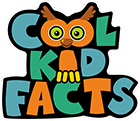15 Interesting Carbohydrates Facts for Kids (2023 Updated!)
Carbohydrates are also called carbs, and they are made up of sugar molecules. They are spot-checked in both healthy and unhealthy foods. It is another term for Glycolaldehyde in chemistry. Different categories of carbohydrates are available, but the most commonly known types are sugars, fibers (cellulose), and starches. We consume carbohydrates almost every day but are not really aware about the facts about carbohydrates.
They are crucial for the body because these macronutrients are essential for the proper functioning of the body and are consumed in large quantities as the body cannot produce the micronutrients on its own. The mood changes and memory depend upon the number of carbohydrates consumed.
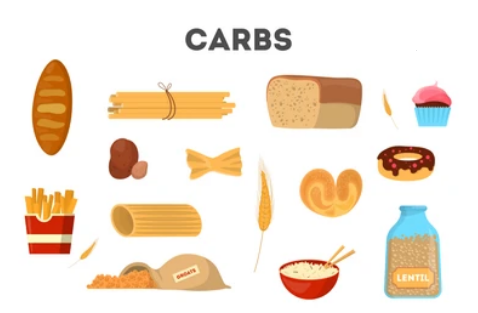
Structure of carbohydrates
What are Carbohydrates?
Carbohydrates are the nutrients that are found in foods and drinks. After consuming food or drink, the carbohydrates in the body break down into glucose, which helps produce energy or calories for daily activities. The reason behind the name carbohydrates is that they contain carbon, hydrogen, and oxygen, the three essential things needed by the body. They should be consumed daily because they prevent the body from consuming more proteins.
What are the different types of carbohydrates?
Carbohydrates are classified into two types: simple carbs and complex carbs. The simple carbs are digested very easily and absorbed compared to complex carbohydrates ones. Simple carbohydrates contain single or double sugars. Carbs with single sugars are called monosaccharides, and the carbs with double sugars are called sucrose (for example, the white sugar that is used daily), lactose (sugar that is found in dairy products), and maltose (natural sugars found in vegetables).
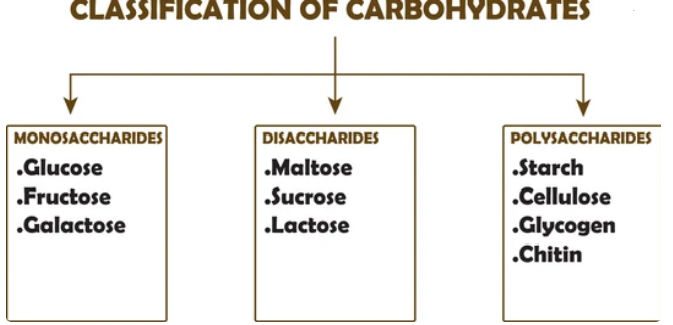
Simple carbohydrates are divided into smaller categories. They are:
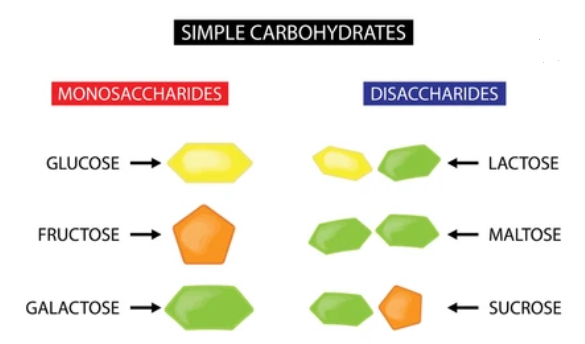
- Monosaccharides: Monosaccharides are the smallest units of carbohydrates. They play an important role in the digestion process and help maintain a better metabolism of the body. The food should be broken down into monosaccharides for better absorption. Monosaccharides are again of three types: Glucose (the main source providing energy for the body), Fructose (the sweetest carbohydrate and is produced by plants), and Galactose (found in products that are from milk).
- Disaccharides: Disaccharides contain two bonded sugar units. They are broken down easily by the enzymes present in the digestive system. After entering into the bloodstream, they provide the necessary energy required to run all the organs in the body.
Disaccharides are of three types: Maltose (which has two glucose molecules and is most commonly found in sprouted grains), Sucrose (a combination of glucose and Fructose and occurs naturally in fruits and vegetables), and Lactose (a combination of glucose and Galactose which is found in dairy products).
The complex carbohydrates are further divided into three polysaccharides.

- Starches: Starches are made of many simple sugars or glucose bonded together in a long chain. Starch is produced by plants to store glucose to provide energy and reproduction. When this starch food is consumed, they are broken down into smaller units to provide energy to the body.
- Glycogen: Glycogen is produced by both humans and animals. This glycogen is found in organs like the liver and skeletal muscle. Because of its chain structure, it is easy to break it down and release glucose when needed in the body.
- Fiber: Fiber is produced by plants for protection and structural support. The fibers are not digestible by humans. So, the fibers in the human body enter the large intestine through the small intestine. The microbiota in the large intestine breaks down the fibers and provides energy to the body.
Which foods have carbohydrates?
Carbohydrates are found in a variety of foods, both healthy and unhealthy, which include: whole grains like bread, noodles, rice, oatmeal; fruits; dairy products like milk, yogurt, paneer, and cheese; sweets and desserts; drinks that have sugars like juices, sports drinks, soft drinks, sodas, and energy drinks; and starchy vegetables like potatoes and corn.
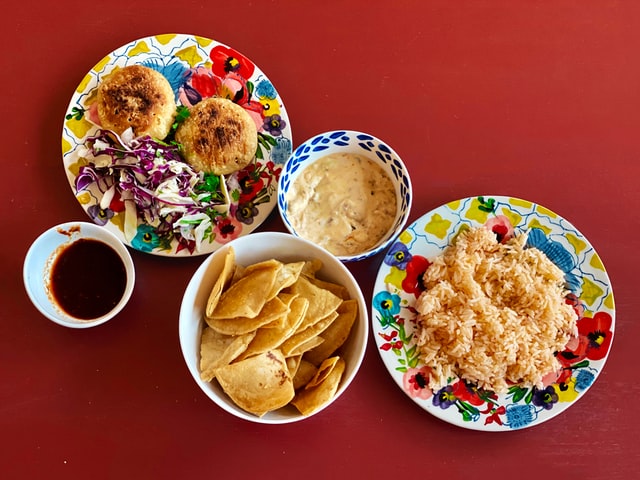
Healthy sources of carbohydrates are fruits, vegetables, bread, and milk. Unhealthy sources are processed and refined carbohydrate foods like refined oils, white bread sodas, and desserts.
Carbohydrates benefits
When the right amount and the right source of carbohydrates are consumed, there will be a lot of benefits for the human body. Some benefits of them for the body are:
- Weight Loss: An essential thing that every human wants is to be in good shape and lose weight. When carbohydrates are consumed in the right quantity, it will help lose weight. A low-carb diet helps to maintain body weight and provides good health.
- Heart Health: Blood is purified and pumped from the heart. It is very important for every human being to maintain good heart health. Fiber should be consumed more as it has low cholesterol properties.
- Brain Health: Carbohydrates help to maintain a good mood. When there is a sufficient amount of carbohydrates in the body, the memory power will increase, which will provide better concentration.

- Vitamins: Vitamins are vital for the body. Carbohydrates have an abundant amount of vitamins that are required by the body.
How much carbohydrate should we eat?
There are no fixed amounts of carbohydrates that are to be consumed daily. Consumption of carbohydrates depends upon factors like weight, age, and sex. Every day, 45 to 65% of their calories should be consumed. As per the research, a total of 275 grams of carbohydrates should be consumed irrespective of age and health.
Interesting facts about carbohydrates
- Simple carbohydrates are found in more nutritious foods. Simple carbohydrates fasten the blood sugar level in the body.
- Complex carbohydrates provide a high amount of energy to the body and slow down the digestion process of sugar molecules.
- Carbo means carbon plus hydrogen(H2O), which is water in the word carbohydrate.
- Carbohydrates not only provide energy but also help in absorbing calcium.
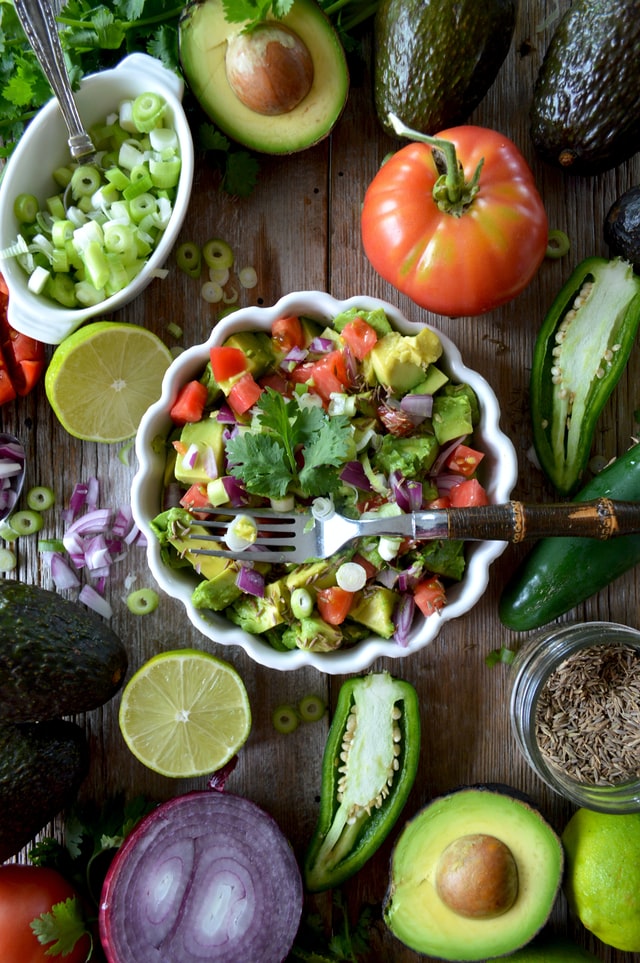
- People who are trying to lose weight consume only low-carb foods. But this nutritious foods food takes a lot of time to show results.
- One of the best ways to get faster relief from diseases is to consume carbohydrates before starting the workout.
- The quickest source of energy for the body is carbohydrates.
- Consuming too many bad carbohydrates like processed and refined foods will lead to obesity. Similarly, consuming a low amount of carbohydrates leads to malnutrition.
- The human body cannot produce carbohydrates. Rather, it is produced by plants in the form of fruits and vegetables.
- The other activities of carbohydrates in the body are oxidising fats and breaking down the protein in the body.
- The only organ in the body that is highly dependent on carbohydrates is the brain. The brain uses a high amount of glucose.
- The carbohydrates are stored as glycogen in muscles and the liver.
- Fructose, a complex carbohydrate, was consumed very highly between 1970 and 2005, about 10,630%.
- In the rest position, 10% of energy is produced from proteins, 40% from fats, and the rest 50% from carbohydrates.
- Fungi have a structural carbohydrate molecule called chitin.
- It is possible to live on healthy diet with zero or low carbs by using proteins for energy. But the body will not have sufficient proteins to perform other important functions for the body.
Conclusion
Carbohydrates are complex chemical structures and the building blocks of sugar. These sugars will link together and form different types of carbohydrates. These are the source of energy for every human being. It is important to consume them daily as they provide energy to the brain and the kidneys, central nervous system, and heart. The carbohydrates can be used in many flavours and sweeteners.
